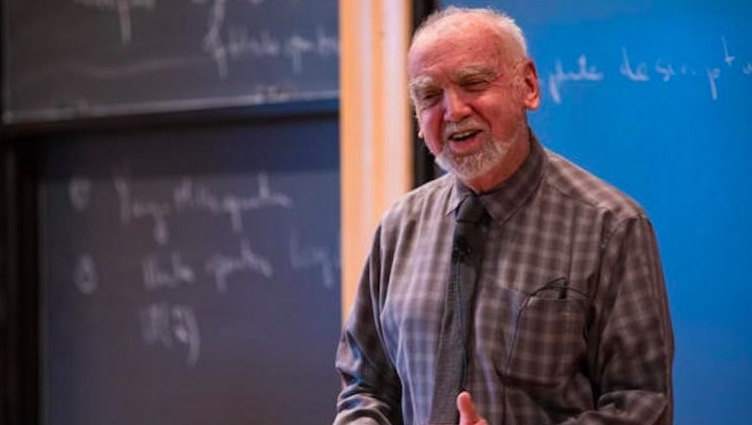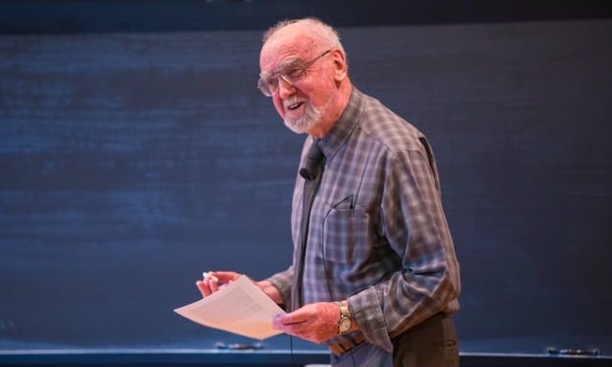The mathematician Robert Langlands, awarded the Abel 2018 Prize, in a interview ...
Clube Entrevista de Setembro de 2018

Robert Langlands. Photograph: Dan Komoda/Institute of Advanced Study
Clube de Matemática da SPM interviews one of today's greatest living mathematicians, Robert P. Langlands, distinguished with the 2018 Abel Prize. Read here ...
You were born in Canada in New Westminster. What do you remember most in your homeland?
New Westminster is on the Fraser river near its mouth. Only a small part of my childhood was spent there. It was otherwise spent in small towns directlyon the shore, thus a few yards from the shore or a few hundred yards from it. It is the sea I remember.
When and how did your passion born for mathematics?
I don't think I have a passion for mathematics. Lacking much knowledge when I went to university the choice was between mathematics and physics. The physics professors were not broad-minded and did not appreciate my spontaneous appreciations of say thermodynamics. Moreover I had no experimental talent. With mathematics I was on my own.
You were not going to university. But a professor convinced you otherwise. Is it true?
Yes, but replace professor by teacher.
In recent years, hundreds of the world's top mathematicians have been working on the Langlands Program. What is the Langlands program?
May I suggest that you try the web, in particular http://publications.ias.edu/rpl/.
Throughout your career you have been distinguished with several awards. Among them, Jeffery-Williams (1980), Cole (1982), Wolf (1995-96), Steele (2005), Nemmers (2006) and Shaw (2007). You were also elected a member of Royal Society of London (1981) and American Mathematical Society (2012). This year you were distinguished with the Abel Prize 2018, due to a work published in 1967. In broad lines this publication is about what?
Once again try the we http://publications.ias.edu/rpl/.
You gambled everything in a 17 page letter when you addressed André Weil at the age of only 30 and said "If you are willing to read it as pure speculation I would appreciate that. If not, I'm sure you have a waste basket handy." Did you feel the importance of the moment?
The letter itself was not important. The ideas I had and I would have written them down in any case. I certainly considered them important. As explained elsewhere the letter was the result of an accidental encounter.
You received from the King of Norway, Harold V, in a ceremony on May 22, the Abel Prize 2018. How do you remember that day?
It was a day like any other. The King himself is about my age and our conversation was along the lines of any conversation between men of our age. It was polite and agreeable but brief.
Portugal is a very beautiful country. What do you know about Portugal? When are you going to visit us?
I have unfortunately never been in Portugal nor in Spain and indeed in any of the Spanish/Portuguese speaking countries of the Western Hemisphere or Europe nor can I pretend to be familiar with their literature. I am ashamed of that but life is short. My wife and I were once on the Spanish border, but not knowing the language we decided not to cross it and spent the night in Collioure.

Robert Langlands. Photograph: Dan Komoda/Institute of Advanced Study
What do you do in your spare time?
Not much. I would like to understand history, both short term and long term, thus human history or the planet's history, but that means there is much to think about and much to learn.
The mathematician Alfred Rényi once said that "when I am unhappy I work in mathematics to be happy. When I'm happy, I work in mathematics to keep myself happy." What makes you happy?
Do you mean cheerful? If so, many things, some personal, some professional. Happy is more difficult. The world is a troubling place. My family might say that I was not cheerful often enough. I hope these answers will do.

